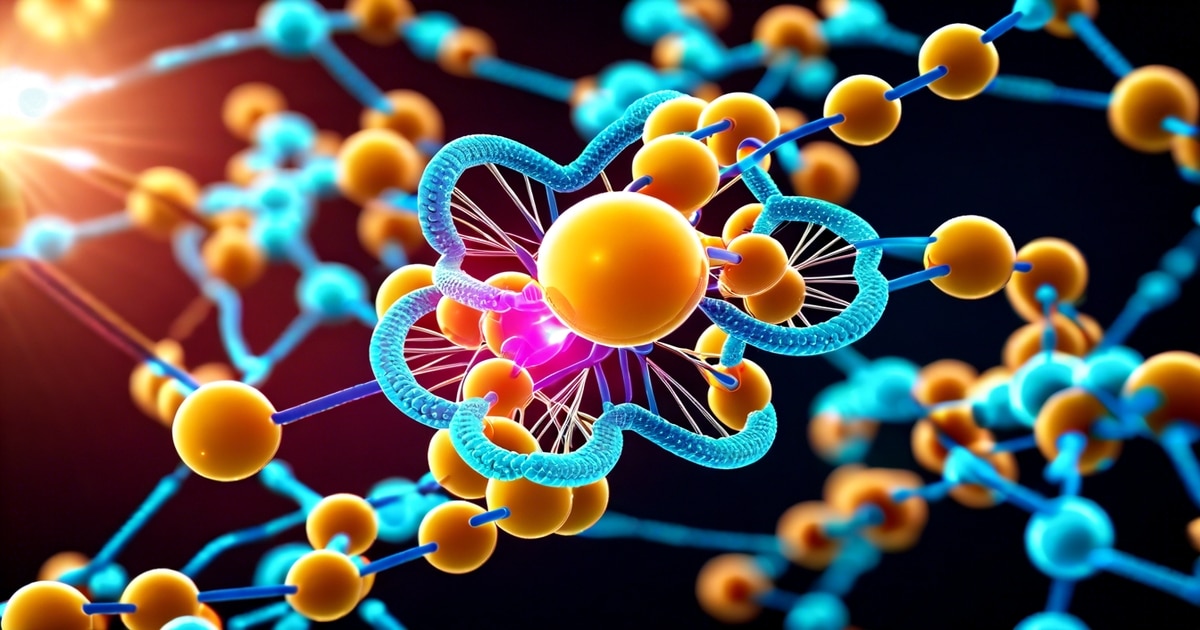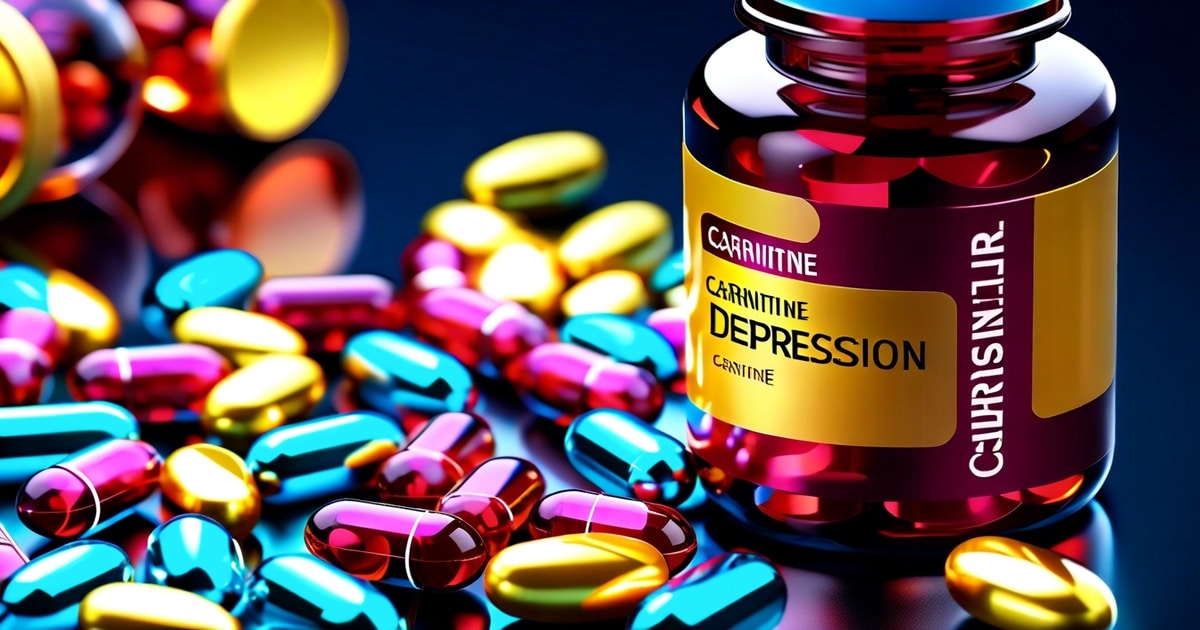Key Takeaways
- Consider Acetyl-L-Carnitine Supplementation: If you are experiencing symptoms of depression, consider incorporating acetyl-L-carnitine supplementation for its rapid antidepressant effects after consulting with a healthcare provider.
- Focus on Neurotransmitter Regulation: Acetyl-L-carnitine may help regulate neurotransmitters, potentially improving mood and mental well-being.
- Address Oxidative Stress: The antioxidant properties of acetyl-L-carnitine can combat oxidative stress, which is linked to depression.
- Support Neuroplasticity: Acetyl-L-carnitine may support neuroplasticity, enhancing the brain’s ability to adapt and change, which is crucial for mental health.
- Consult a Professional: Before starting any supplementation regimen or prevention, it’s essential to seek guidance from a healthcare professional, especially for patients, to ensure safety and efficacy.
- Monitor Effects: In a clinical trial, track how acetyl-L-carnitine supplementation affects your mood and overall well-being to assess its effectiveness in managing depression.
- Acetyl-l-carnitine depression relief!
Understanding Acetyl-L-Carnitine and Depression
Potential Benefits
Studies suggest that acetyl-L-carnitine could offer advantages for patients with depression. This compound is naturally present in the body, influencing brain function and mood regulation. Research indicates that acetyl-L-carnitine might help alleviate symptoms of depression by enhancing neurotransmitter activity.- Boosts neurotransmitters related to mood regulation
- Supports cognitive function and mental well-being
Role in Brain Function
The presence of acetyl-L-carnitine is crucial for maintaining optimal brain health. It plays a vital role in energy production within brain cells, contributing to overall cognitive function. Acetyl-L-carnitine acts as an antioxidant, protecting brain cells from damage caused by oxidative stress.- Essential for energy production in brain cells
- Acts as an antioxidant to protect against cell damage
Physiological Functions of Carnitine
Energy Production and Cellular Health
Carnitine is essential for transporting fatty acids into the mitochondria, converting them into energy. This process ensures that our cells have the fuel needed to function properly. In addition to its role in energy production, carnitine also aids in removing waste products from cells. By facilitating this cleansing process, it contributes to maintaining overall cellular health.Organ Functioning Support
The presence of carnitine is crucial for proper organ functioning as it plays a significant role in energy metabolism. Various organs rely on this compound to carry out their functions effectively.- Supports efficient energy production
- Aids in waste removal from cells
- Crucial for organ functioning
Linking Carnitine Deficits to Depression
Impact on Depressive Symptoms
Research indicates that acetyl-l-carnitine plays a crucial role in mental health. Lower levels of carnitine have been associated with depression. When individuals lack sufficient carnitine, it might lead to the onset or exacerbation of depressive symptoms. Addressing these deficits could potentially offer relief for patients struggling with mood disorders. Carnitine is involved in cell energy production and helps transport fatty acids into mitochondria for energy generation. In cases where there’s a deficiency, this process can be disrupted, impacting brain function and contributing to conditions like depression.Potential Benefits of Supplementation
Supplementing with acetyl-l-carnitine may help alleviate depressive symptoms by restoring optimal levels in the body. Studies suggest that this amino acid derivative has antidepressant effects because it enhances neurotransmitter function and mitochondrial activity. By addressing carnitine deficiencies through supplementation, patients may experience mood and overall mental well-being improvements.- Supplementing with acetyl-l-carnitine can improve mood.
- Restoring optimal carnitine levels may positively impact brain function.
- Studies support the use of acetyl-l-carnitine for alleviating depressive symptoms.
Potential Antidepressant Mechanisms of Acetyl-L-Carnitine

Enhanced Neurotransmitter Activity
Acetyl-L-carnitine is crucial in enhancing serotonin and dopamine activity, both vital for regulating mood. By boosting these neurotransmitters, acetyl-L-carnitine can potentially alleviate symptoms of depression. For instance, serotonin is often called the “feel-good” neurotransmitter due to its impact on mood. Studies have shown that patients with depression may have lower levels of these neurotransmitters, leading to symptoms like sadness and lack of motivation. Acetyl-L-carnitine’s ability to increase their activity could help restore balance and improve overall mood.Antioxidant Properties
Another essential aspect is acetyl-L-carnitine’s antioxidant properties. These properties enable it to combat oxidative stress effectively. Oxidative stress can damage cells, including those in the brain responsible for mood regulation, potentially contributing to depressive symptoms. By acting as an antioxidant, acetyl-L-carnitine helps protect these cells from harm.- Boosts serotonin and dopamine levels
- Acts as an antioxidant against oxidative stress
Neuroplasticity and Oxidative Stress Effects
Supporting Neuroplasticity
Acetyl-L-carnitine is crucial in supporting neuroplasticity by aiding the brain in forming new neural connections. This process is essential for adapting to new experiences, learning, and memory. By enhancing neuroplasticity, acetyl-L-carnitine can potentially help in treating depression by promoting positive changes in the brain’s structure and function.- Acetyl-L-carnitine supports structural plasticity.
- It aids in forming new neural connections.
- Enhances adaptability to new experiences
Managing Oxidative Stress
Oxidative stress occurs due to an imbalance between antioxidants and free radicals, leading to cell damage. This imbalance can contribute to various health issues, including depression. Acetyl-L-carnitine helps combat oxidative stress by neutralizing harmful free radicals with its antioxidant properties.- Acetyl-L-carnitine combats oxidative stress
- Neutralizes harmful free radicals
- Protects cells from damage caused by oxidative stress
Regulation of Neurotransmitters and Neuroprotective Effects
Mood Regulation
Acetyl-L-carnitine can influence neurotransmitters like serotonin and norepinephrine, which are essential for regulating mood. By aiding in the balance of these chemicals, it may contribute to managing symptoms related to depression. Research suggests that this compound could provide a natural way to support mental well-being by positively impacting the brain’s chemistry.- Acetyl-L-carnitine helps regulate neurotransmitters like serotonin and norepinephrine.
- It plays a crucial role in mood regulation.
- Balancing these neurotransmitters is vital for maintaining good mental health.
Brain Health Support
Moreover, acetyl-L-carnitine exhibits neuroprotective effects, safeguarding brain cells from degeneration. This protective quality aids in maintaining cognitive function and overall brain health. Enhancing mitochondrial function, which is the powerhouse of cells, promotes optimal brain performance and neural communication.- Acetyl-L-carnitine has neuroprotective properties.
- These effects help prevent the degeneration of brain cells.
- Enhancing mitochondrial function supports overall brain health.
Efficacy of Supplementation for Depression Treatment

Benefits of Acetyl-L-Carnitine for Depressive Symptoms
Research suggests that acetyl-L-carnitine supplementation shows promise in alleviating depressive symptoms. It may act as a supportive therapy alongside traditional antidepressant medications. For some individuals, this supplement could offer additional relief from symptoms associated with depression.- May improve depressive symptoms
- Acts as an adjunct therapy with antidepressants
Consultation with Healthcare Professionals
Before incorporating acetyl-L-carnitine into your treatment plan, it is crucial to consult a healthcare professional. Individual responses to supplementation can vary significantly among MDD patients, making personalized guidance essential. Healthcare providers can offer tailored advice based on your needs and existing treatment regimen.- Varying individual response
- Importance of consulting healthcare professionals
Investigating Carnitine in Mood and Mental Well-being
Potential Benefits of Carnitine for Mental Health
Research is actively exploring the effects of acetyl-l-carnitine on mental health conditions like depression. Studies suggest that carnitine may play a role in mood regulation, potentially offering benefits for individuals struggling with depressive symptoms. For example, some clinical trials have shown promising results in improving mood and overall mental well-being among participants supplementing with carnitine.- Offers potential benefits for mental health
- May improve mood regulation and mental well-being
- Some clinical trials show positive outcomes.
- Research suggests it could lead to innovative treatments for depression.
- Essential to establish ideal dosages and long-term impacts
- Crucial for identifying target populations benefiting from carnitine therapy
Final Remarks
You’ve delved into the world of acetyl-L-carnitine and its potential impact on depression. Understanding how this compound influences neurotransmitters, neuroplasticity, and oxidative stress could be crucial in managing mood disorders. By exploring its antidepressant mechanisms and neuroprotective effects, you’ve gained insight into the promising role acetyl-L-carnitine might play in mental well-being. As you reflect on the efficacy of supplementation for depression treatment and the ongoing research in this field, consider discussing these findings with a healthcare professional. Your journey to uncover the benefits of acetyl-L-carnitine for mood regulation and mental health is just beginning. Stay curious and informed as you navigate the realm of supplements and mental well-being.Frequently Asked Questions
Can acetyl-L-carnitine help with depression?
Research suggests that acetyl-L-carnitine may have antidepressant effects by influencing neurotransmitter regulation and reducing oxidative stress. It shows promise in improving mood and mental well-being.How does acetyl-L-carnitine impact neuroplasticity?
Acetyl-L-carnitine is believed to enhance neuroplasticity, the brain’s ability to rewire itself. Supporting this process may aid in improving cognitive functions and adaptive responses to stressors.Is there a link between carnitine deficits and depression?
Studies indicate that low levels of carnitine in the body could be associated with depressive symptoms. Supplementing with acetyl-L-carnitine might help address these deficits and potentially alleviate some aspects of depression.Can Acetyl-L-Carnitine Cause Any Side Effects When Used for Depression?
When considering the risks of acetyllcarnitine for treating depression, it’s important to be aware of potential side effects. Some individuals may experience nausea, vomiting, or headaches. In rare cases, it may also cause restlessness or agitation. It’s important to consult a healthcare professional before starting any new supplement.

